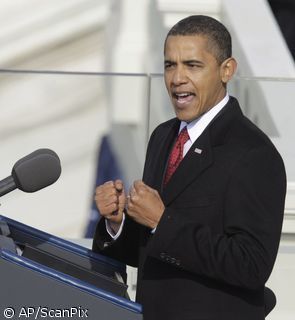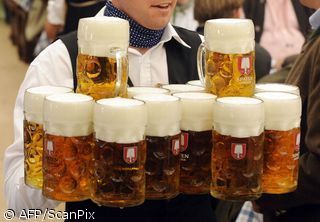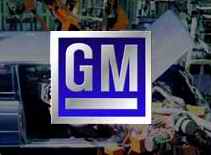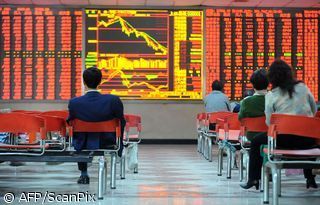OLAF and Europol strengthen cooperation in combating financial crime
Published:
9 April 2004 y., Friday
OLAF - The European Anti-fraud Office - and Europol - the European Police Office - shall sign an administrative arrangement putting in place the modalities for their practical co-operation.
Mr Jürgen Storbeck, Europol's Director and Mr Franz-Hermann Brüner, Director General of OLAF shall tomorrow, in Brussels, sign an administrative arrangement regarding co-operation between Europol and OLAF in order to fight fraud, corruption or any other criminal offence or illegal activity in the framework of international organised crime affecting the European Community's financial interests.
In order to step up the fight against fraud, corruption and any other illegal activity affecting the financial interests of the European Community, the European Anti-Fraud Office established by Commission Decision 1999/352/EC, ECSC, Euratom exercises the powers of investigation conferred on the Commission by the Community rules and Regulations and agreements in force in those areas.
The Office provides the Member States with assistance from the Commission in organising close and regular cooperation between their competent authorities in order to coordinate their activities for the purpose of protecting the European Community's financial interests against fraud.
The Treaty of the European Union mentions (art. 29 and 30) Europol as an important instrument of the Union's efforts to prevent and fight against organised crime in order to achieve the objective of providing its citizens with a high level of safety within an area of freedom, security and justice. Europol aims to improve the effectiveness and co operation between the competent authorities of the Member States in preventing and combating serious international organised crime. The mission of Europol is to make a significant contribution to the European Union's law enforcement action against organised crime, with an emphasis on targeting criminal organisations.
Based in The Hague, The Netherlands, Europol started limited operations on 3 January 1994 in the form of the Europol Drugs Unit (EDU) fighting against drugs. The Europol Convention was ratified by all Member States and came into force on 1 October 1998. Following a number of legal acts related to the Convention, Europol commenced its full activities on 1 July 1999.
Šaltinis:
europa.eu.int
Copying, publishing, announcing any information from the News.lt portal without written permission of News.lt editorial office is prohibited.
The most popular articles
 Bank DnB NORD A/S increasing its holdings in its Lithuanian subsidiary to 99.84 percent through acquisition of shares from minority shareholders.
more »
Bank DnB NORD A/S increasing its holdings in its Lithuanian subsidiary to 99.84 percent through acquisition of shares from minority shareholders.
more »
 AB Bank SNORAS will grant LTL 35 million for financing the small and medium businesses on the exclusive conditions.
more »
AB Bank SNORAS will grant LTL 35 million for financing the small and medium businesses on the exclusive conditions.
more »
 Rejecting survival plans from both General Motors and Chrysler, President Barack Obama warned the ailing US automakers they could be forced into bankruptcy if they don't find a way to slash their debt.
more »
Rejecting survival plans from both General Motors and Chrysler, President Barack Obama warned the ailing US automakers they could be forced into bankruptcy if they don't find a way to slash their debt.
more »
 Prevailing wisdom says when the going gets tough the weary go drinking. The demand for beer exceeds the demand for all other alcoholic beverages in USA.
more »
Prevailing wisdom says when the going gets tough the weary go drinking. The demand for beer exceeds the demand for all other alcoholic beverages in USA.
more »
 Things have been moving slowly for Swiss watchmakers in recent months. The global economic downturn has hit the country's third most important industry hard.
more »
Things have been moving slowly for Swiss watchmakers in recent months. The global economic downturn has hit the country's third most important industry hard.
more »
 The move came a day before the U.S. government was due to outline new steps to help GM and Chrysler as part of the federal bailout.
more »
The move came a day before the U.S. government was due to outline new steps to help GM and Chrysler as part of the federal bailout.
more »
 With the European year of creativity and innovation in full swing, leading figures warn against cutting back on research and development in times of crisis.
more »
With the European year of creativity and innovation in full swing, leading figures warn against cutting back on research and development in times of crisis.
more »
 Wall Street has been looking for signs of a bullish comeback, and today's surprise news on the economic front revived a buying spree... started by Monday's 7% rally.
more »
Wall Street has been looking for signs of a bullish comeback, and today's surprise news on the economic front revived a buying spree... started by Monday's 7% rally.
more »
 With the economic crisis eating away at public finances, budget deficits in five countries are expected to exceed the 3% of gross domestic product allowed by the EU.
more »
With the economic crisis eating away at public finances, budget deficits in five countries are expected to exceed the 3% of gross domestic product allowed by the EU.
more »
 China is calling for a new global currency to replace the dominant dollar, showing a growing assertiveness on revamping the world economy ahead of next week's London summit on the financial crisis.
more »
China is calling for a new global currency to replace the dominant dollar, showing a growing assertiveness on revamping the world economy ahead of next week's London summit on the financial crisis.
more »